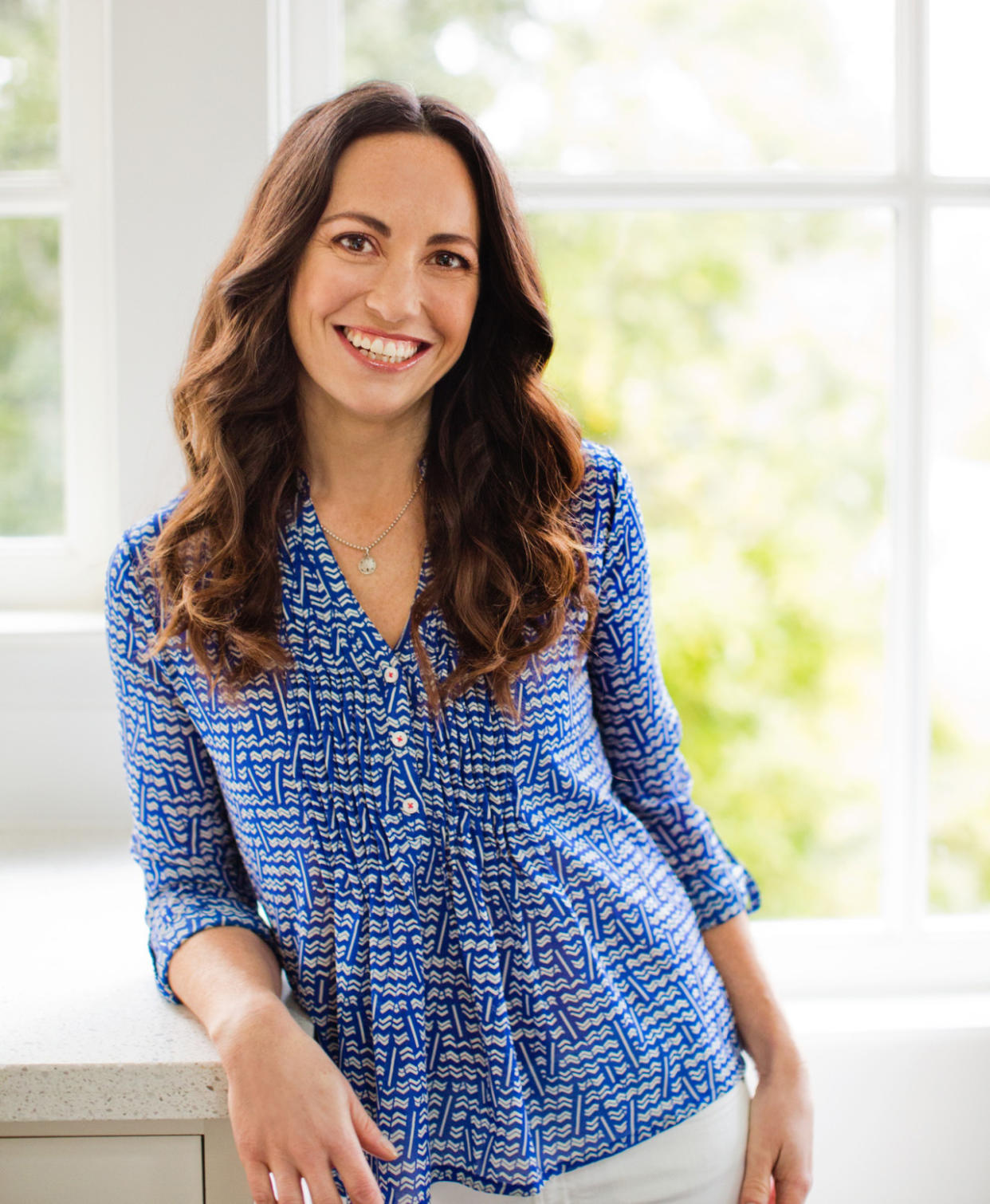How This Food Entrepreneur Was Literally Born to Make Healthy Snacks

Nicole Bernard Dawes was born into the snack business — her mother ran a natural food shop in the ’70s in, while her father, Stephen Bernard, founded Cape Cod Potato Chips. Dawes combined her mother’s love of healthy eating with her father’s love for snacks and founded of Late July snacks, known for their delicious and good-for-you non-GMO, organic tortilla chips.
Dawes, who leads Late July alongside her husband, Peter, credits both of her parents for her business savvy, but says there are also a few challenges to working with family. The entrepreneur and mother of two boys tells Yahoo Food how she started her multimillion dollar business, her hopes for the future of food, and what snacks she’s not allowed to bring into her kitchen.
How did your parents inspire you to build your own food business?
My mom had a health food store in the 70s, then my dad started a potato chip company. The one thing that was frustrating [about healthy snacks] was the taste. The food was bad and the packaging was boring. It was an uninspiring place to eat.
My dad, on the other hand, loved food. He would go to six different stores to make a meal. When he started his potato chip company, his approach was natural snacks don’t have to taste bad. Before, people were using hydrogenated oil to fry their chips in, and he thought we could do it the all-natural way.
Taking his approach to the all natural way and mom’s approach to what healthy snack should be, I remember thinking as a kid, there’s gotta be a better way and there’s something more we can do here.
What sort of snacks was your mom selling back then?
There were carob-covered rice cakes, those crackers that tasted like cardboard. My mom would slice cheddar cheese on them to make them taste better. But they didn’t. Fresh produce is wonderful — that was not the problem in her store. The milk and yogurt was fine. It was when you got the snacks where it all fell apart.
Tell us how you started developing Late July.
In 2001, I was pregnant. I spent 6 months of my pregnancy doing R&D in my own kitchen. The first products were a saltine cracker and a saltine cheese cracker. They took off. Crackers were never my end game, it was a way to get started. It allowed us to become the company we are today. Over time, we were able to get access to more ingredients, and in 2009 we started on tortilla chips. We got them to market in 2010.
What’s your best selling product?
Tortilla chips are our top seven products.
What products outside of chips and snacks are you working on?
We feel like we still have room to go in tortilla chips. We’re doing new flavors. We just launched one using purple corn. Purple corn has four times the antioxidants of blueberries. It has a really interesting flavor. It’s hard to be great at everything. When you’re doing too many things, the risk is you do them all a little less great. I want every single product we launch to be delicious and have super high quality. I don’t think any company can be a jack of all trades.
Is it easier or harder to work with family?
My husband grew up with his parents working together, too. My parents did it, and we do it. I wouldn’t say it’s for everyone, but we’re pretty good at it. I love working with my husband. He used to be in the film business, where he had no control over his schedule. Now we can work together professionally and personally. There’s someone always there for our kids.
What’s your biggest challenge as a small business owner in the food industry?
For being an organic snack, supply is a constant problem. Just when you think you’ve got it all figured out, [you’ll have an ingredient] that’s incredibly important, and then your entire year’s supply just got damaged. You have to wait for a whole crop before you can get it again, unlike some traditional products that you can swap out and get it again. Supply challenges keep me awake. [We are] constantly dealing with shortages and changing regulations. We get our organic jalapeño from a third generation farm in California and that’s the only place we can get them. So that’s a bit scary. A couple of years ago, limes were really affected by the drought and we were scrambling for months trying to find limes.
What does your success prove about the way people care about how they eat today?
It’s an exciting time to be in the food business. We’re at this precipice of change, and we’ll look back 20 years from now and see we set a path for creating a more sustainable food system.
When you want to have a cheat day, a day when you’re not eating your own healthy snacks, what do you and your family eat?
One of my kids has severe food allergies, so that makes it hard. We obviously don’t buy any competitors. Not at home. We do test out competitors at the office. Growing up, if I bought a Frito-Lay product in our house I would have been persona non grata. We’ll buy almonds for snacks in the house. We bake cookies together. There’s a homemade donut shop down the street, so we’ll make a trip to get donuts.
Try Nicole’s homemade salsa recipe here.
For more on snacking, check out these stories:
7 After-School Snacks That Won’t Spoil Dinner
12 Snacks That Are Better Covered in Chocolate
7 Healthy, DIY Airplane Snacks

